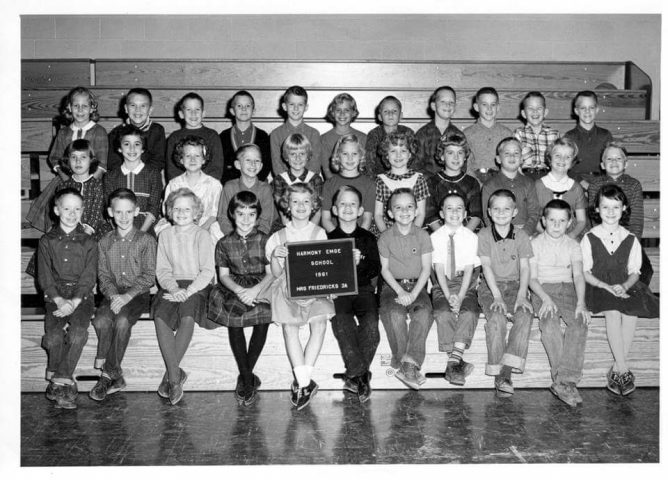Lots of us work. Many of us are into encore careers. We spend hours each month as volunteers. Grandchildren are a joyful part of life for some of us. We love adventure and pride ourselves on being active. We intend to stay connected.
For us, living with hearing loss is just not an option.
Stay with me. After all, one in three people older than 60 have some degree of hearing loss. One in three.
For our parents and other older adults (one in two people older than 85 have it), hearing loss is equated with getting older. But we’re boomers, and we’re not into that getting older talk.
Here are a few signs that our hearing or that of our friends is changing:
– We ask people to repeat what they’ve said
– We feel like other people are mumbling or not speaking clearly
– We have difficulty hearing or understanding speech in noisy environments
– We miss words or phrases on the phone
– We turn up the volume on the TV or radio.
Dare I say that on occasion, I may have asked people to repeat what they’ve said. But suggesting that I or friends of mine are “hard of hearing” is just not right. I mean, really now.
But let’s consider a few of life’s possible scenarios:
– You are in an interview or business meeting and you ask people to repeat comments no one else seems to be missing;
– Your grandchild screams for you and you don’t know because she is just out of range;
– A colleague/or your GPS reads directions and you miss an important turn;
– You are at a party, someone tells a story, you laugh at what you think you heard but judging by the horrified look on other faces, you misheard;
– A business prospect gives you her card and tells you how and when to contact her and you miss part of it in the noisy auditorium;
– Someone tells you to “watch out” yet you trip and fall because you didn’t understand what they “mumbled” to you.
We don’t want to miss out.
Through a recent conversation with Donna Hanley, Patient Care Coordinator, and Dr. Kate Brown, Audiologist, of Connect Hearing, I learned a lot about hearing loss, and that while they may not be able to “fix it” they can “assist it.” And, that today, assisting is so different than it was years ago.
I asked Donna about boomers’ resistance to getting their hearing checked.
“If you couldn’t see well wouldn’t you get your eyes checked?” Donna responded. True. Although I remember some initial resistance.
We talked about baseline screening, and how if we don’t pass the initial screening, a full hearing test is recommended. It’s painless. We would sit in a soundproof booth, and at Connect Hearing, be tested by Kate, a Doctor of Audiology.
Did you know that the “use it or lose it” principle applies to our hearing? Unmanaged hearing loss can lead to deteriorated understanding of speech over time. According to the American Academy of Audiology, people with unmanaged hearing loss often experience a decreased quality of life. People may become sad, depressed, or suffer from anxiety or paranoia and their social relationships may suffer. Hearing loss can also lead to more fatigue because of one’s increased efforts to understand speech.
Recent studies show a link between hearing loss and dementia. Brandeis University Professor of Neuroscience, Dr. Arthur Wingfield says unaddressed hearing loss not only affects the listener’s ability to “hear” sounds accurately, but it affects higher-level cognitive function. That means it interferes with the listener’s ability to make sense of what they hear. Dr. Wingfield adds that even mild hearing loss that goes untreated makes it much more difficult for a person to perceive and understand what is being said. He suggests that as people move through middle age and beyond, they should have their hearing tested annually.
Hearing loss for us boomers can actually be worsened by factors beyond age, such as diabetes, poor circulation, noise exposure, and certain medications.
Today hearing loss is managed using technology and improving communication strategies. In fact, if a hearing aid is recommended, you may be surprised to know that most options are virtually invisible and that many models actually sense your surroundings and adjust to every sound automatically. New wireless and Bluetooth solutions are ready to support the hearing needs of boomers.
It’s out! Some of us have or will expect to have, hearing loss.
So, lets face it like the big kids we are. Get checked. Do what is recommended. Hear your world again.
And don’t miss out!
Special thanks to Donna Hanley, Patient Care Coordinator, and Kate Brown, Au.D., F-AAA, of Connect Hearing, 459 South Kirkwood Road, Kirkwood, MO 63122. Their phone number is 314-821-8258. You may call them to schedule an appointment or to ask any questions. They are easy to talk with and I think you will find them most helpful. Hearing tests are free; they suggest that each of us needs a baseline to know whether our hearing is changing. Online you will find them at http://www.connecthearing.com.
You will also find relevant information at http://www.HowsYourHearing.org, and http://www.betterhearing.org.





